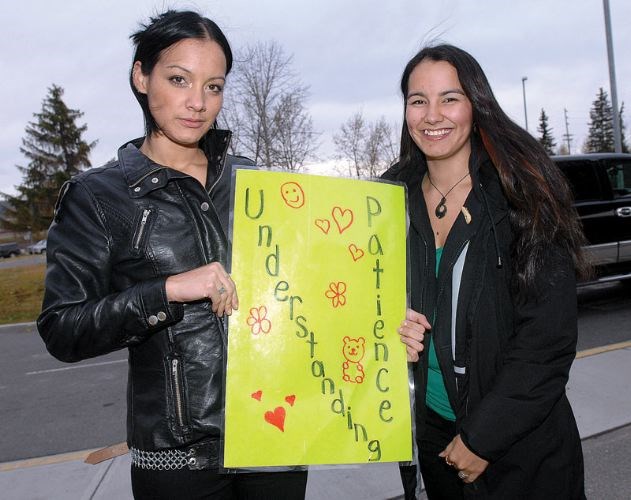In his decision released Wednesday, B.C. Supreme Court Justice Ron Tindale disagreed with concerns about the impact converting the old Haldi Road elementary school into a recovery centre for women suffering from addiction issues could have on the surrounding neighbourhood,
Tindale said the developmental impact of the 30-bed facility on the area "would be minimal."
"Also, the need for special needs housing does not only exist in urban areas and, in my view, the proposed use of the facility has a residential nature which is not incompatible with the area," he added.
Tindale dismissed a petition to the court from residents in the area seeking to overturn city council's April 2012 decision to allow the project to go ahead.
The petition was filed just three weeks after council's decision and also after a previous council decision in the project's favour was overturned by another B.C. Supreme Court Justice, John Truscott, who found the attempt to rezone the property violated the official community plan.
In response, the current council amended the OCP following a public hearing, to allow special needs and therapeutic housing in rural areas, and then made a "site-specific" amendment to the rural residential land-use zone that applied to the property.
For a time after the school was closed in 2002, it was used as a single-family dwelling until sold in 2011 to a group who intended to convert the building into the Northern Supportive Recovery Centre.
But the petitioners, led by area resident Torre Pettersen, said that was not good enough.
They claimed the centre remained inconsistent with the OCP and, moreover, argued council's amendment to the OCP was "internally inconsistent" with city policies in respect to the type of property in that area.
During the trial, held in October 2013, the city argued there is no statutory requirement that an OCP be internally consistent, only that subsequent zoning bylaws be consistent with the OCP.
Tindale agreed with the city's position, and further dismissed petitioners' argument that adoption of a site-specific policy for a therapeutic community care facility is invalid because that would mean the OCP has become a zoning bylaw.
"An OCP does not commit or authorize a municipality to proceed with a project that is specified in the plan... An OCP has a plethora of goals and objectives. An OCP does not have any legal effect on a private land owner. Zoning bylaws do have a legal effect on private landowners," Tindale said.
More important, said Tindale, the "ultimate question" is whether the changes made sufficiently answer the shortcomings Truscott raised in his decision. And Tindale found they had, saying the problem Truscott found with the OCP not containing any policies relating to a such a facility in a rural area "has been rectified by these amendments."
The centre is to be located in an existing building that has been used as both a residence and a school, Tindale further noted.
"It provides a community service and accords with the OCP mandate for special needs housing in a rural area. It is not inconsistent with a rural lifestyle. It is just an inevitable progression in an ever changing community," Tindale said.



